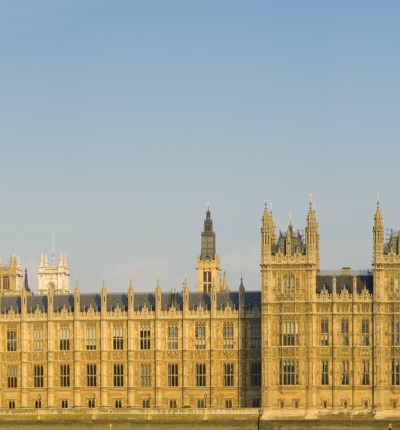
'Unlawful' closure of Dubs Amendment: permission to appeal granted
Help Refugees has won the right to appeal the Government's decision to relocate only 480 lone refugee children under the Dubs Amendment.
Posted on 25 January 2018
Help Refugees has won the right to appeal the Government’s decision to relocate only 480 lone refugee children under the Dubs Amendment.
A coalition of MPs and lawyers are teaming up with charity Help Refugees to launch a new crowdfunding campaign today to help finance the case against Home Secretary Amber Rudd over the ‘unlawful’ closure of the Dubs Amendment.
Organisers hope the £30,000 fundraiser will give the British public the chance to help vulnerable children reach the UK via safe and legal routes. The campaign has been launched on CrowdJustice, the world's crowdfunding platform for legal action.
Help Refugees, represented by law firm Leigh Day, presented evidence and arguments to the Court of Appeal that the ‘consultation’ by which the Government calculated the number of children to be relocated was seriously defective. Permission to appeal was granted, and the full case will now be heard by the Court of Appeal.
The litigation has already forced the Government to admit that it had ‘missed’ 130 places for children and to lift the number of spaces available for unaccompanied children from 350 to 480. But Help Refugees and their lawyers argue that there were further serious flaws in the consultation and that the number remains far too low.
The Dubs amendment, proposed by Lord Alf Dubs, who as a child escaped the Nazis on the Kindertransport, initially sought to bring 3,000 children to the UK. Lord Dubs said:
"The Dubs Amendment has provided a lifeline for over 200 children so far - but this appeal gives us the chance to bring a greater number to safety. The conditions faced by unaccompanied refugee children are dreadful - from the forests of Calais, to the shores of Italy and the camps, or often the streets, in Greece.
"The government promised to act, but after nearly two years, they have failed to fulfil their promise to the British people - and to these vulnerable children. This appeal gives us the chance to hold them to account, and offer sanctuary to those in Europe who need it most."
Josie Naughton, CEO and Co-Founder of Help Refugees, said:
"We are delighted that permission to appeal has been granted. The crisis these children are facing is still as desperate now as it was when the amendment was passed.
"Help Refugees is a movement of everyday people taking joint action to improve the lives of refugees. The Dubs campaign was the greatest public pressure to help refugees in this country in generations. Now we’re asking for the British public’s help to fund this case and help hold the government to account on their unfulfilled legal responsibility to provide sanctuary to unaccompanied children".
Rosa Curling, a human rights solicitor from Leigh Day who is acting on behalf of Help Refugees, said:
"We are pleased the Court of Appeal has listened to the concerns raised by our clients who believe the Government needs to reopen the consultation so that national capacity to assist these lone children, many of who are struggling to survive and at risk of serious abuse, can be properly assessed."
After nearly two years, the low number of places available for children has yet to be filled. To date, only one child has been relocated from Greece to the UK under the Dubs Amendment. There are currently believed to be 3,350 unaccompanied children in Greece, many of whom remain stranded in desperate conditions on the Greek islands.
In another development which Help Refugees has pressed for, the Government has now announced that it will adjust the stringent criteria children must meet in order to be eligible for transfer. Until recently, the Government insisted that only children who could prove they had been present in Europe before March 2016 were eligible for transfer.
Help Refugees and its lawyers have argued that, as the process of transfer is dragged out by the Government, the eligibility date needed to be amended so that very vulnerable recent arrivals could be considered for transfer and because many unaccompanied children who had arrived long ago could no longer be traced. Now the Government has accepted that children who arrived in Europe before March 2018 will be potentially eligible for transfer.

